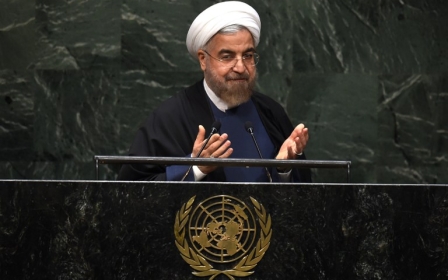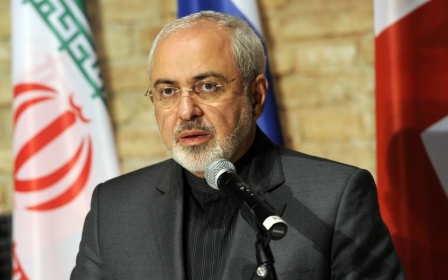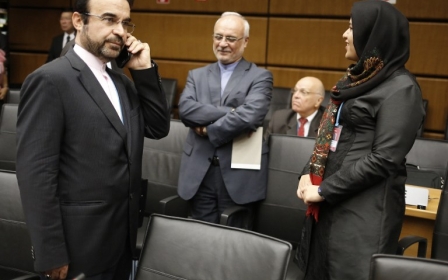Iran FM says not in favour of extending nuclear talks

Iran does not want to extend its nuclear talks with world powers beyond a November 24 deadline, Foreign Minister Mohammad Javad Zarif said Thursday.
"We only have 40 days left to the deadline and also none of the negotiators find (an) extension of talks as appropriate. We share this view... and we think there is no need to even think about it," Zarif said on the sidelines of talks in Vienna, quoted by the website of state television.
The deal being sought, after a decade of rising tensions, is meant to ease concerns that Iran might be able to develop nuclear weapons under the guise of its civilian programme.
To do this, world powers want Iran to scale down dramatically the scope of its atomic activities, offering in return relief from painful sanctions, but Iran is resisting.
Zarif said the sanctions "have had no effect" on Tehran's development of its nuclear programme.
"Sanctions are a symbol of a past relationship, and this symbol should be broken. That's why we are putting the emphasis on (lifting) them."
Iran president: nuke deal 'certain'
Meanwhile, Iran's President Hassan Rouhani said on Monday night that a deal with the West over Iran's nuclear program could be reached within a month, before the deadline.
Rouhani was speaking in a live television broadcast ahead of a meeting with EU foreign policy chief Catherine Ashton, the US Secretary of State John Kerry and Iran's Foreign Minister Javad Zarif in Vienna later this week.
"I believe a final settlement can be reached within the remaining 40 days," Rouhani said.
The president also pointed out that the two camps had reached agreement over the general matters, although there were details to be sorted out.
He added that; "12 years of dispute cannot be solved overnight."
The last round of talks between the sides on the sidelines of September's UN General Assembly had not yielded any striking results, which was criticized by Rouhani as "extremely slow."
New MEE newsletter: Jerusalem Dispatch
Sign up to get the latest insights and analysis on Israel-Palestine, alongside Turkey Unpacked and other MEE newsletters
Middle East Eye delivers independent and unrivalled coverage and analysis of the Middle East, North Africa and beyond. To learn more about republishing this content and the associated fees, please fill out this form. More about MEE can be found here.




